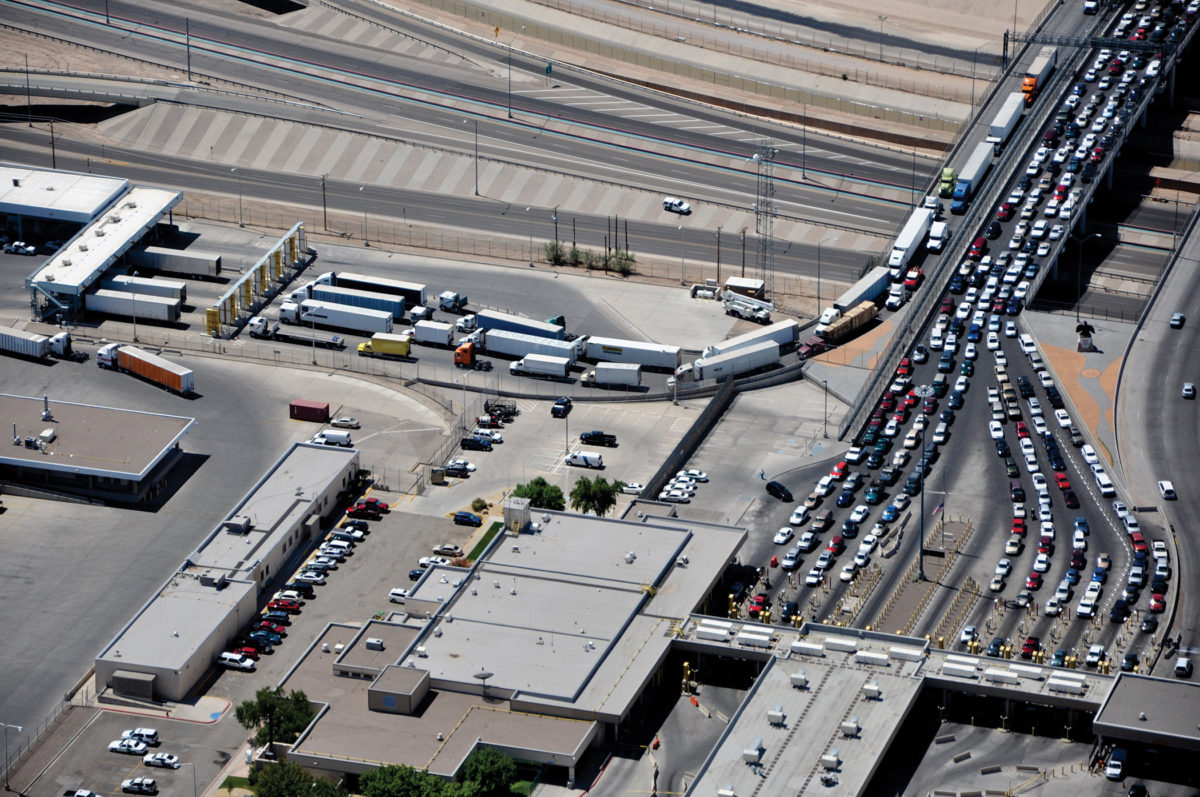Trusted shipper programs have proven successful in reducing border wait times and increasing just-in-time inventory delivery reliability.
What’s the Problem?
The North American Free Trade Agreement (NAFTA) has created unprecedented economic growth and opportunity for Mexico and the United States. A natural part of that growth involves increased cross-border transportation of goods. Border operations involving security and facilitation were sufficient before NAFTA; however, many facilities are now reaching saturation. The U.S. and Mexican governments indicate they cannot afford additional funding to improve capacity at border crossings, so optimizing current border operations is key to facilitating increased trade. The mayors’ offices of El Paso and Juarez have recognized bridge saturation as a problem that will only worsen as trade increases.
What’s the Solution?
Trusted shipper programs — established jointly by U.S. Customs and Border Protection and its Mexican counterpart, Aduana — are playing a part in solving this problem. These programs create a list of shippers whose cargo is scrutinized less at the border because they’ve met pre-approved criteria established by the trading countries to qualify as a “trusted shipper.” These programs have proven successful in reducing border wait times and increasing just-in-time inventory delivery reliability. Both countries seek to increase membership in these programs and develop partnerships for exchanging data and reduce bureaucracy to facilitate trade without compromising security.
How Was the Study Done?
 The Texas A&M Transportation Institute’s (TTI’s) Center for International Intelligent Transportation Research and the Coalición Empresarial Pro Libre Comercio (CELC) conducted a border survey in El Paso/Juarez to determine why companies decide to join (or not join) trusted shipper programs and which border crossing to use. TTI/CELC researchers surveyed 250 companies, including manufacturing, assembling plants, customs brokers, importers, logistics providers, and transportation companies.
The Texas A&M Transportation Institute’s (TTI’s) Center for International Intelligent Transportation Research and the Coalición Empresarial Pro Libre Comercio (CELC) conducted a border survey in El Paso/Juarez to determine why companies decide to join (or not join) trusted shipper programs and which border crossing to use. TTI/CELC researchers surveyed 250 companies, including manufacturing, assembling plants, customs brokers, importers, logistics providers, and transportation companies.
Conclusions
Researchers have identified reasons why companies sometimes choose not to join trusted shipper programs. Formal findings will be delivered in October 2013. Generally speaking, recommendations for increasing membership involve program champions:
- partnering with public and private information providers to help companies understand the costs and benefits of joining trusted shipper programs.
- building border crossing-predictive models to be used by decision makers.
- establishing a strategic plan to gain access to corporate leaders and decision makers.
Project Title
Assessment of Multiple Layers of Security Screening of Trucks by Customs Border Protection in El Paso, TexasProject Number
186043-00005
Project Sponsor(s)
Center for International Intelligent Transportation Research
Project Categories
Economics & Policy, Freight Movement
Project Termination Date
08/31/2013
Project Publications
For More Information
Brenda Manak
Research Specialist IIResearch & Implementation - Houston Region – Suite 430
Texas A&M Transportation Institute
701 N. Post Oak
Houston, TX 77024
Ph. (713) 613-9228 Ext. 15128
B-Manak@tti.tamu.edu
